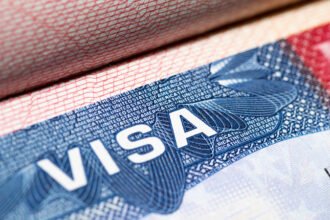Proving non-immigrant intent is one of the most critical aspects of applying for a U.S. visa. For Nigerians, this requirement often poses unique challenges due to the presumption under Section 214(b) of the Immigration and Nationality Act (INA) that all applicants for temporary visas are potential immigrants. To overcome this presumption, applicants must demonstrate strong ties to their home country that will compel their return after their visit to the United States.
This guide provides detailed steps for proving non-immigrant intent, explaining the required evidence, common challenges, and how to address them effectively.
Understanding Non-Immigrant Intent
Non-immigrant intent refers to an applicant’s genuine intention to travel to the U.S. temporarily for specific purposes, such as tourism, business, or study, and to return to their home country afterward. Proving this intent is essential for obtaining visas such as the B1/B2 (tourist/business), F-1 (student), or J-1 (exchange visitor) visa.
Factors Consular Officers Consider
Consular officers evaluate the following factors to determine whether an applicant demonstrates non-immigrant intent:
- Ties to the Home Country: Evidence of personal, financial, and professional connections that ensure the applicant’s return.
- Purpose of Travel: A clear and well-documented reason for visiting the U.S.
- Financial Capability: Assurance that the applicant can cover expenses during their stay without unauthorized work.
- Immigration History: A track record of compliance with visa conditions and international travel.
Common Non-Immigrant Visa Categories
1. B1/B2 Tourist or Business Visa
- Purpose: For tourism, attending business meetings, or medical treatment.
- Proving Intent: Demonstrating ties to Nigeria, such as family responsibilities, property ownership, or ongoing employment, is crucial.
2. F-1 Student Visa
- Purpose: For enrolling in academic or vocational programs.
- Proving Intent: Highlight post-graduation plans in Nigeria and explain how the education will benefit your career.
3. J-1 Exchange Visitor Visa
- Purpose: For participating in exchange programs, internships, or training.
- Proving Intent: Showcase career objectives tied to Nigeria and evidence of program sponsorship.
Key Evidence to Prove Non-Immigrant Intent
To demonstrate non-immigrant intent convincingly, you need to provide comprehensive evidence across the following categories:
1. Strong Ties to Nigeria
Personal Ties
- Family Responsibilities:
- Marriage certificates or affidavits proving a spouse resides in Nigeria.
- Birth certificates of children dependent on the applicant.
- Property Ownership:
- Land or homeownership documents.
- Utility bills or lease agreements demonstrating residency in Nigeria.
Professional Ties
- Employment Verification:
- Letter from your employer confirming your job position, salary, and approved leave of absence.
- Evidence of career advancement opportunities upon returning to Nigeria.
- Business Ownership:
- Proof of active business operations, such as tax returns, financial statements, and business registration documents.
Financial Ties
- Bank Statements:
- Recent bank account statements showing consistent income.
- Fixed deposits, investments, or savings accounts.
- Investments:
- Ownership of stocks, bonds, or other financial assets tied to Nigerian institutions.
2. Purpose of Travel
Clearly articulating and documenting the purpose of your visit is vital to proving non-immigrant intent.
For B1/B2 Tourist or Business Visas
- Itinerary: A detailed plan of your activities in the U.S., including travel dates, accommodations, and places to visit.
- Return Tickets: Proof of round-trip flight bookings.
- Invitation Letters: Letters from U.S.-based hosts or business partners detailing the purpose of your visit.
For F-1 Student Visas
- Educational Documents:
- I-20 Form issued by the U.S. school confirming your admission.
- Transcripts and certificates demonstrating academic performance.
- Post-Study Plans:
- A written statement explaining how your education will contribute to your career in Nigeria.
For J-1 Exchange Visitor Visas
- Program Details:
- Sponsorship letters from the exchange program organizers.
- Proof of program relevance to your field of work or study in Nigeria.
3. Financial Stability
Consular officers need assurance that you can afford your U.S. trip without seeking unauthorized employment.
Documents to Provide
- Recent bank statements showing adequate funds.
- Evidence of regular income, such as pay slips or business revenue.
- If sponsored, provide:
- Sponsor’s financial documents.
- Letter of sponsorship detailing the relationship and funding arrangements.
4. Immigration and Travel History
A positive travel history indicates that you respect visa conditions and are likely to return to Nigeria after your U.S. visit.
Evidence
- Previous passports with entry and exit stamps from other countries.
- Documentation proving compliance with past visa conditions.
- Letters from previous hosts confirming the purpose and completion of prior trips.
Preparing for the Visa Interview
The visa interview is a critical opportunity to prove your non-immigrant intent.
Tips for Success
- Be Honest and Consistent
- Ensure your interview responses match the details in your application and supporting documents.
- Practice Common Questions
Prepare clear answers for likely questions, such as:
- What is the purpose of your visit to the U.S.?
- How long do you plan to stay?
- Who is funding your trip?
- What ties do you have to Nigeria?
- Present Documents Neatly
Organize all documents in a folder for easy access during the interview. - Dress Professionally
First impressions matter. Wear formal attire to convey seriousness and professionalism.
Common Mistakes to Avoid
1. Insufficient Documentation
Failing to provide adequate proof of ties to Nigeria is one of the most common reasons for visa denials.
2. Inconsistent Information
Contradictions between your interview responses and application details can lead to suspicion.
3. Overstating Intentions
Avoid giving overly elaborate or irrelevant details that may complicate your case.
4. Ignoring Financial Requirements
Applying without sufficient proof of financial capacity often results in denial.
What Happens If Your Visa Application Is Denied?
If your visa is denied under Section 214(b), it means the consular officer was not convinced of your non-immigrant intent.
Steps to Take After a Denial
- Request Explanation: Politely ask the officer for the reason behind the denial.
- Address Weaknesses: Identify gaps in your application and strengthen your case.
- Reapply: Submit a new application with additional evidence to address the reasons for the previous denial.
Tips for Reapplying After a Denial
- Strengthen Ties: Provide new or additional documentation showing stronger connections to Nigeria.
- Improve Documentation: Ensure all supporting materials are thorough and up to date.
- Seek Professional Guidance: Consult an immigration expert to refine your application.
Conclusion
Proving non-immigrant intent is a crucial step for Nigerians applying for U.S. visas. By providing compelling evidence of your ties to Nigeria, clearly articulating your purpose of travel, and preparing thoroughly for the visa interview, you can increase your chances of approval.
While the process can seem daunting, careful preparation and honest communication are the keys to success. By demonstrating strong connections to your home country and financial readiness, you can successfully navigate the U.S. visa application process and achieve your travel goals.



